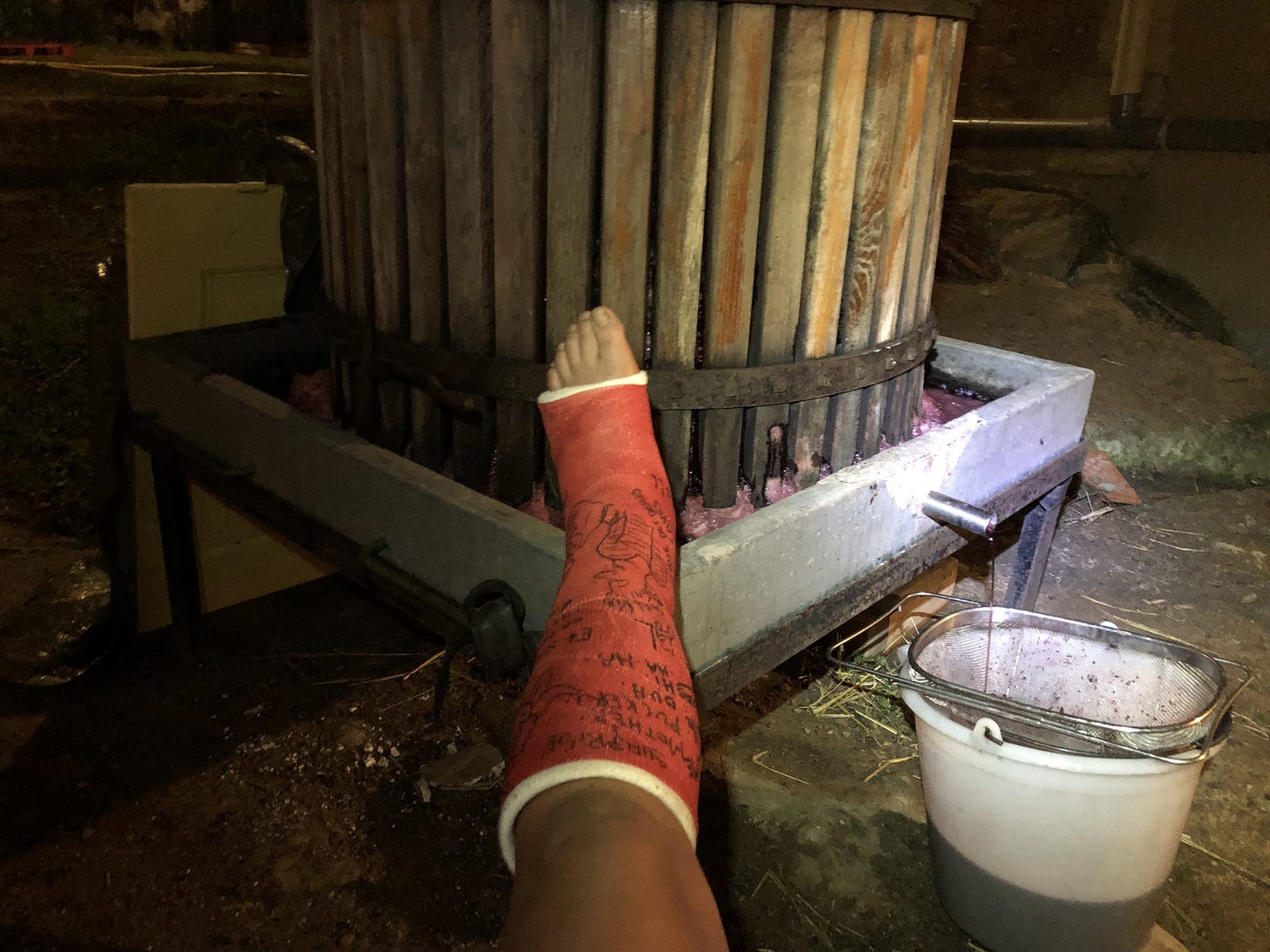No one makes wine alone

This is what I learned from harvest 2019:
Don’t judge a man by what he’s got tattooed on his face (in this case, A.C.A.B)
Supermarket salad crates also work for harvesting grapes and are cheaper than caisse
I don’t want a pneumatic press
You don’t make wine alone.
I learned technical things too, as well as stuff you can’t be taught but learn from making mist…
Keep reading with a 7-day free trial
Subscribe to The Morning Claret to keep reading this post and get 7 days of free access to the full post archives.



